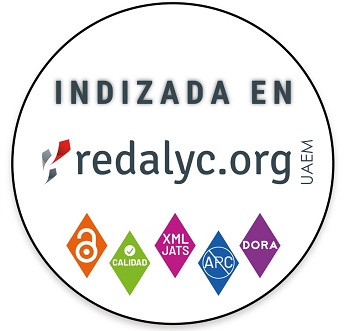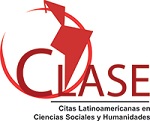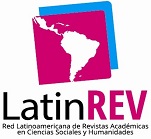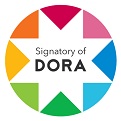Educational Thought by N. K. Krupskaya
DOI:
https://doi.org/10.26490/uncp.horizonteciencia.2022.22.1068Keywords:
N.K. Krupskaya, Educational sciences, pedagogical thought, Soviet pedagogy, HistoryAbstract
The study of qualitative approach, descriptive of narrative and analytical design of topics, deals with the thought in the pedagogical field of the biggest representative of the Russian Education, N. K. Krupskaya, and makes an analysis of the factors that intervened for his Marxist approach. It also shows historically the development of her life and ideology together with her greatest achievements for which she is recognized worldwide. It aims to describe his pedagogical thought and the factors intervening in his formation after diligently systematizing the data collected in the register, they are categorized and structured taking into account the synthetic analysis by triangulation of texts. It makes a description of their identification, the principles of the unique school, free or Soviet as well as the omnilaterality development as the desired characteristic in the students of this pedagogy, together with their methods and the combination that makes of the work with the education and their intervention in the orphanages and the feminism that are being revaluated in this time, on the other hand some experiences of their thought and inheritance are shown. She concludes by characterizing her as the greatest female representative of Russian pedagogy that puts the collective before individuality, a fruitful author of publications and the creator of the single, free or socialist school.
Downloads
References
Amadio, M., Opertti, R., & Tedesco, J. C. (2015). El currículo en los debates y en las refomas educativas al hosrizonte 2030. IBE Working Papers on Curriculum Issues, 15(August), 34.
Baturenko, S. A. (2019). Marxist feminism as theoretical project, genesis andexperienceofimplementationintheXXcentury. Moscow State University Bulletin. Series 18. Sociology and Political Science, 25(1). https://doi.org/10.24290/1029-3736-2019-25-1-111-129
Brito, F. L., & Caetano, E. (2020). Krupskaya, a “Estrela Vermelha”: educação escolar e a emancipação feminina. Jangada: Crítica | Literatura | Artes, 2(15). https://doi.org/10.35921/jangada.v2i15.247
Bryantseva, M. (2019). The role of N . K . Krupscaya in the creation of the soviet education system. History of Education and Pedagogy UDC, 6, 133–144. http://www.pmedu.ru
Carrasco, S. (2006). Metodología de la investigación (San Marcos (Ed.); Primera). San Marcos.
Ceballos Marón, N. A., & Sevilla Vallejo, S. (2020). El efecto del aislamiento social por el Covid-19 en la conciencia emocional y en la comprensión lectora : estudio sobre la incidencia en alumnos con trastornos de aprendizaje y menor acceso a las nuevas tecnologías. Revista Internacional de Educación Para La Justicia Social, 9.
Díez Gutiérrez, E. J. (2017). La educación en la revolución soviética: la lucha contra el analfabetismo y la enseñanza gratuita, laica y universal. http://hdl.handle.net/10612/8125
Dyer, W. (1976). Tus zonas erróneas. In Estados Unidos.
Feitosa, R. A. (2018). Una Construcao da pedagogia socialis. Educ. Soc, 39(145), 1063–1066. https://doi.org/10.1590/ES0101-73302018188083
Gendina, N., & Sbitneva, G. (2019). A talented scholar and pedagogue (On the 90-th anniversary of Gertuda Gedrimovich). Scientific and Technical Libraries, 5. https://doi.org/10.33186/1027-3689-2019-5-117-124
Hernándes-Sampieri, Roberto Mendoza Torres, C. (2018). Metodología de la investigación. Las rutas cuantitativa, cualitativa y mixta (McGraw-Hill Interamericana editores (Ed.); 1st ed.). Mc GRaw Hill Education. https://www.ebooks7-24.com:443/?il=6443,
Hernández Carrera, R. (2014). La investigación cualitativa a través de entrevistas: Su análisis mediante la teoría fundamentada. Cuestiones Pedagógicas: Revista de Ciencias de La Educación, 23, 187–210.
Hernández Salamanca, O. G. (2013). La pedagogía socialista en la URSS: fundamentos para la configuración del individuo plenamente desarrollado. Nodos y Nudos, 4(34), 40. https://doi.org/10.17227/01224328.2283
Karaseva, A. A. (2019). Idea of public education in the works of N. K. Krupskaya. Bulletin of the Moscow State Regional University (History and Political Science), 2. https://doi.org/10.18384/2310-676x-2019-2-20-27
Kornetov G. B. (2019). Aural publication of the Nizhny Tagil State socio-pedagogical institute (branch) Federal State Educational Institution of Higher Professional Education "Russian State Vocational and Pedagogical University. Historical and Pedagogical Journal, 1(1). https://doi.org/10.17853/2304-1242-2019-1
Krupskaya, N. (1986). La educación laboral y la enseñanza (Editorial Progreso (Ed.); 1st ed.). Victor Mednikov.
Krupskaya, Nadeshda. (1978). La educación de la juventud (Koba (Ed.); 1st ed.). Bolchetvo. http://bolchetvo.blogspot.com/%0ANadeshda
Martinez, M. (2004). Ciencia y arte en la metodología cualitativa (Editorial Trillas (Ed.); 1st ed.).
Mejía, M. (2011). Educaciones y pedagogías críticas desde el sur (C. de educación de adultos de A. Latina (Ed.); 1st ed.). www.ceaal.org
Ministerio de Educación. (2016). Currículo Nacional de la Educación Básica. http://www.minedu.gob.pe/curriculo/pdf/curriculo-nacional-de-la-educacion-basica.pdf
Morin, E. (n.d.). La cabeza bien puesta.
Muñoz, A. (2010). Nadezhda Konstantinova Krupskaya (1869-1969): feminista y bibliotecaria. Mujeres y Libros, 1, 143–156. http://www.pts.org.ar/download_file.php?f=IMG/pdf/Las_mujeres_y_el_socialismo.pdf
Nadiéjda Krúpskaia. (2019). ¿Debería enseñarse a los niños “cosas de mujeres”? Fernando Araújo. https://www.marxists.org/portugues/krupskaia/1910/mes/ensinar.htm
Niño Rojas, V. M. (2011). Metodología de la investigación: Diseño y ejecución (E. de la u (Ed.); Primera).
Pleshkevich, E. A. (2020). K. I. Abramov’s contribution to the development of the methodology of library history: historical reconstruction. Bibliosphere, 2, 3–13. https://doi.org/10.20913/1815-3186-2020-2-3-13
Praciano, J. B. A., & Feitosa, R. A. (2020). Auto-organização da escola do trabalho em Krupskaya e Pistrak: análise inicial sobre a autogestão estudantil a partir da experiência pedagógica soviética. Germinal: Marxismo e Educação Em Debate, 12(1). https://doi.org/10.9771/gmed.v12i1.36838
Russo, M., & Borzì, G. (2020). The rebel thyroid of a revolutionary First Lady. In Journal of Endocrinological Investigation (Vol. 43, Issue 3). https://doi.org/10.1007/s40618-019-01113-7
Stabback, P. (2012). Qué Hace a Un Currículo De Calidad. Oficina Internacional de Educación de La UNESCO, 46(2), 212–219.
Yarlequé Chocas, L. A., Nuñez LLacuachaqui, E. R., & Navarro García, L. L. (2013). Estimular o limitar la estimulación en la educación del niño. Horizonte de La Ciencia, 3(5), 45. https://doi.org/10.26490/uncp.horizonteciencia.2013.5.75
Zakharchuk, T., & Gruzova, A. (2019). Dissertation defense board of St. Petersburg State Institute of Culture: 1938−2018. Scientific and Technical Libraries, 6. https://doi.org/10.33186/1027-3689-2019-6-106-114
Published
Issue
Section
License
Copyright (c) 2021 Henry Juan Javier Ninahuaman

This work is licensed under a Creative Commons Attribution-NonCommercial 4.0 International License.
















